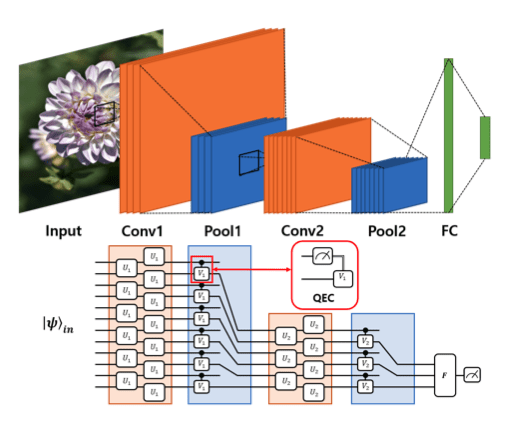
Convolutional Neural Network (CNN) is a popular model in computer vision and has the advantage of making good use of the correlation information of data. However, CNN is challenging to learn efficiently if the given dimension of data or model becomes too large. Quantum Convolutional Neural Network (QCNN) provides a new solution to a problem to solve with CNN using a quantum computing environment, or a direction to improve the performance of an existing learning model.
The first study to be introduced proposes a model to effectively solve the classification problem in quantum physics and chemistry by applying the structure of CNN to the quantum computing environment. The research also proposes the model that can be calculated with O(log(n)) depth using Multi-scale Entanglement Renormalization Ansatz (MERA).
The second study introduces a method to improve the model’s performance by adding a layer using quantum computing to the CNN learning model used in the existing computer vision. This model can also be used in small quantum computers, and a hybrid learning model can be designed by adding a quantum convolution layer to the CNN model or replacing it with a convolution layer.
This paper also verifies whether the QCNN model is capable of efficient learning compared to CNN through training using the MNIST dataset through the TensorFlow Quantum platform.
